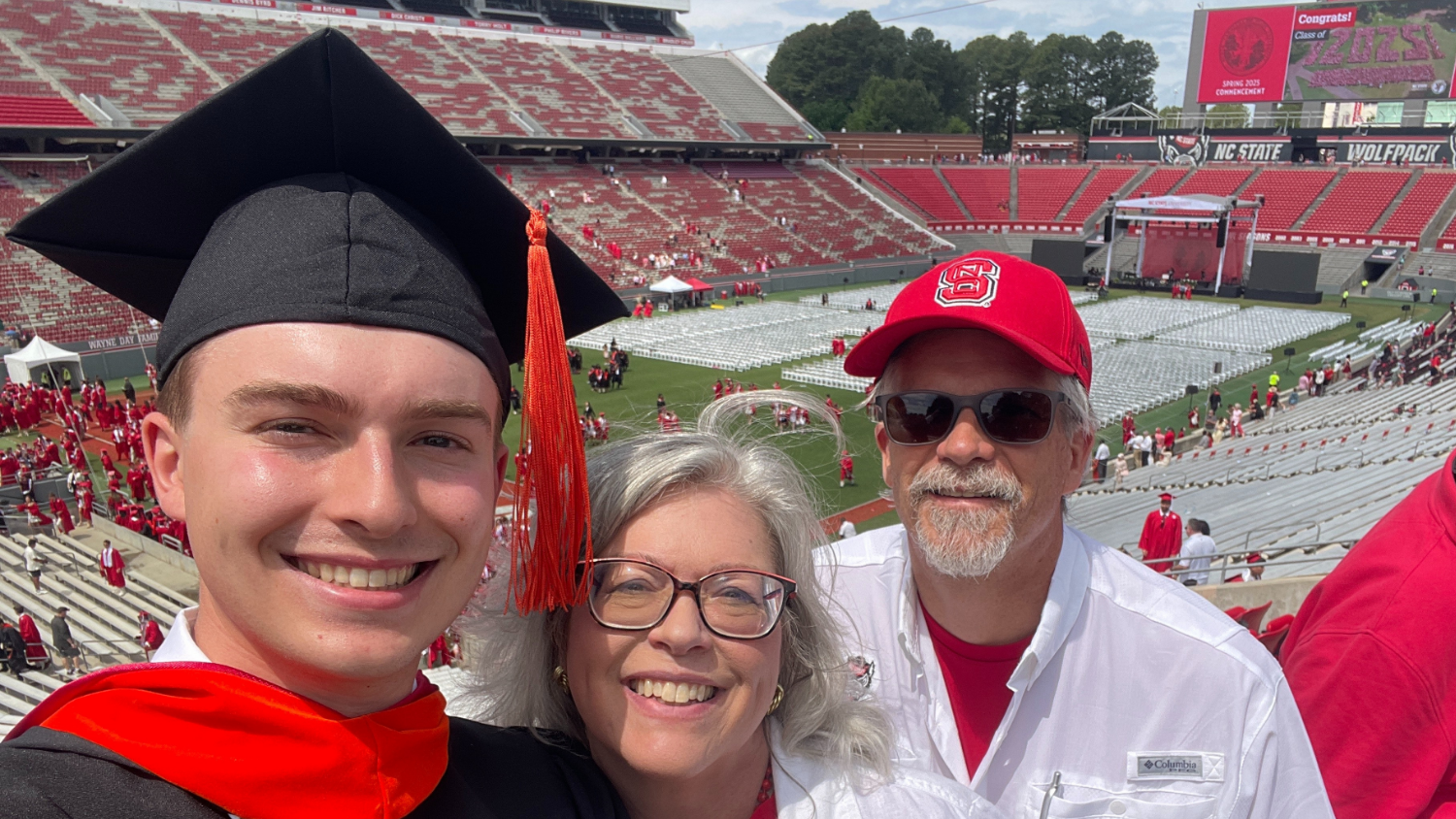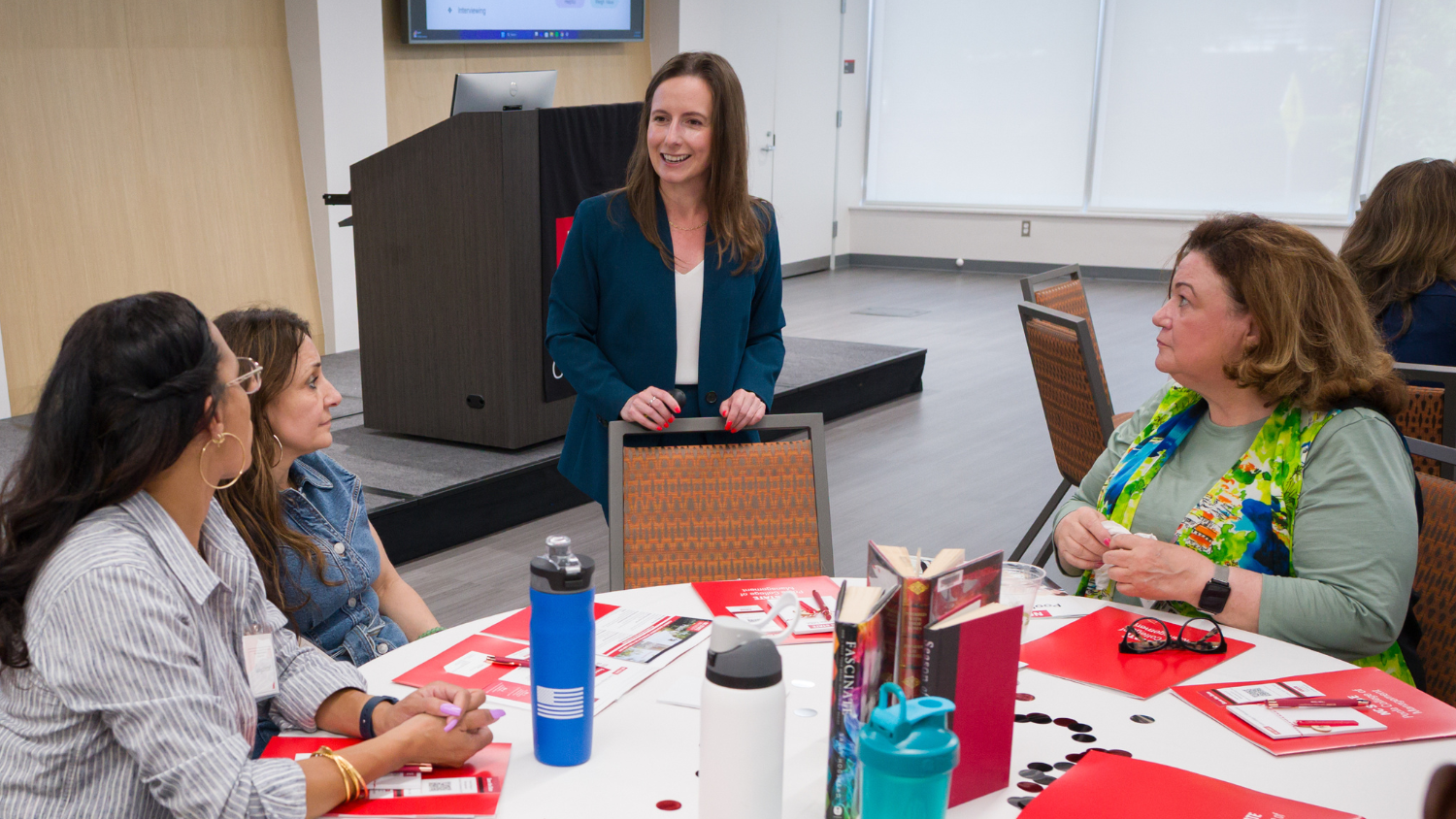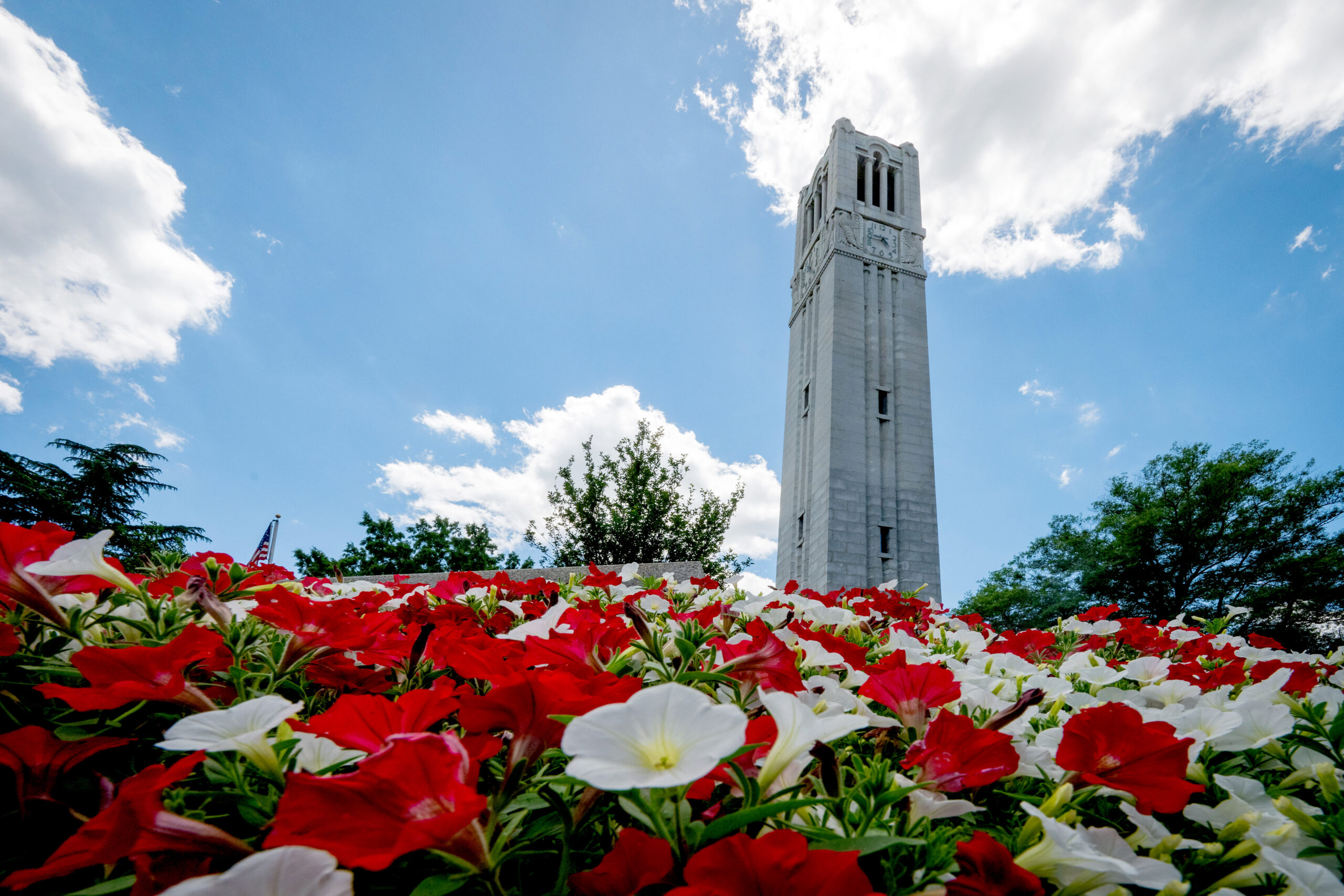Three Teams Begin 2019 Andrews Launch Accelerator
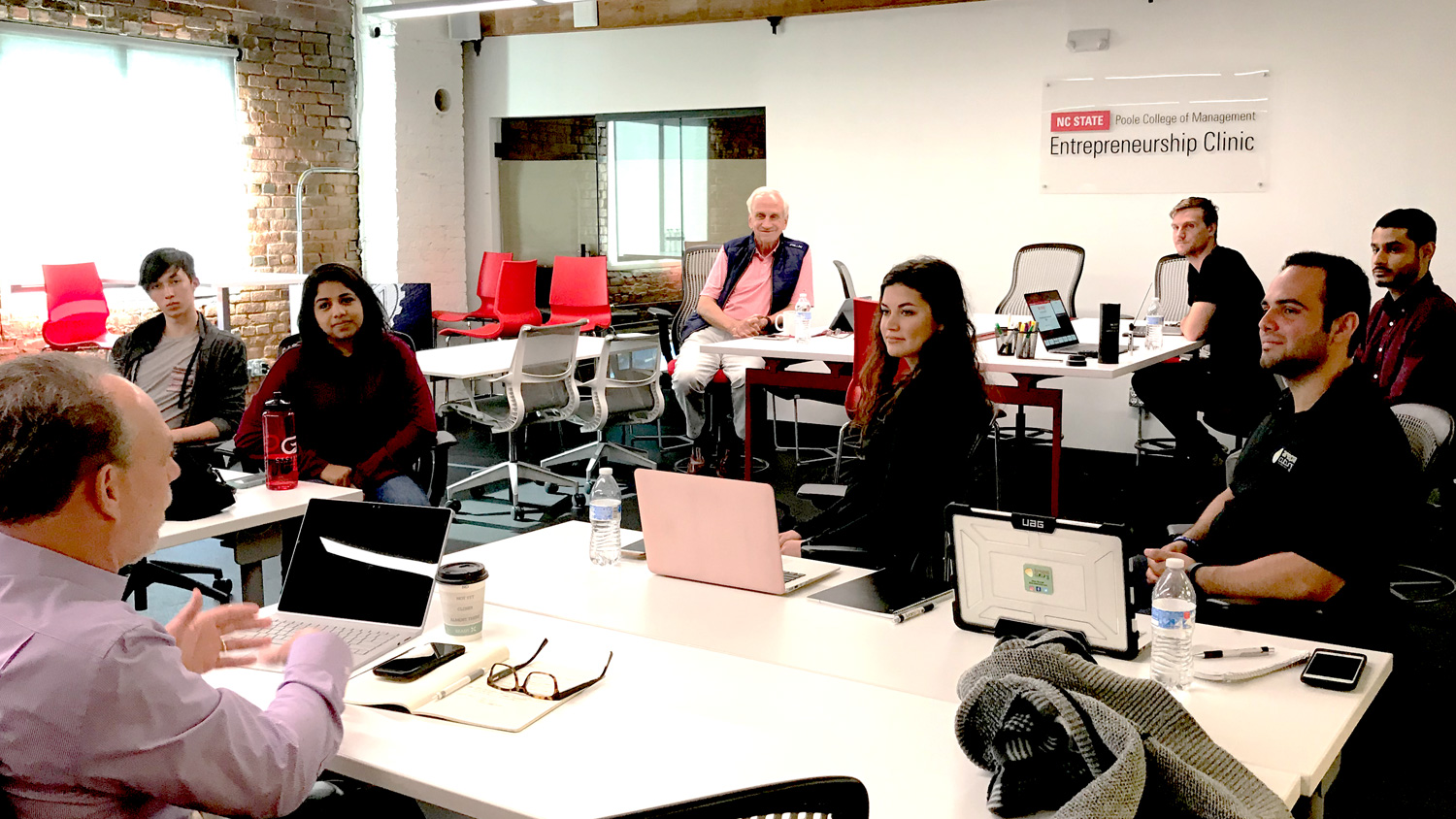
The 2019 Andrews Launch Accelerator cohort met and got their first assignment on May 15, at an orientation meeting held at the NC State Entrepreneurship Clinic in HQ Raleigh.
They were introduced to NC State alumnus Robert “Chip” F. Andrews III, who with his wife Lyn, in 2016 established the NC State Acceleration Fund that awards grants annually to student startup companies selected for the Andrews Launch Accelerator, and Lelon Winstead, recently retired from his role as global utilities ventures and acquisition lead with Accenture, and an NC State alumnus and member of the Wolfpack Investor Network (WIN), who will be assisting as a mentor.
Over the next three months, the 2019 teams will meet for intensive applied learning sessions and mentoring at the NC State Entrepreneurship Clinic, located at HQ Raleigh.
2019 Andrews Launch Accelerator Startup Teams
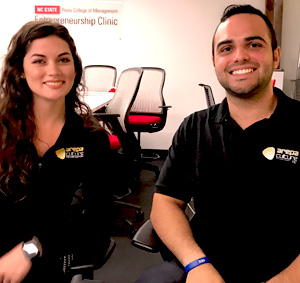
Arepa Culture, a family-owned and operated food truck that serves gourmet-style Venezuelan cuisine, featuring Arepas (ah-reh-pah), a gluten-free white cornmeal “bread” that is handcrafted, grilled, and filled with a variety of ingredients. Marcel Jara, a student in the NC State Poole College of Management majoring in business administration, is co-owner. Their menu, inspired by the Latin American culture, includes many local and organic products, with vegetarian and vegan options and can accommodate dietary restrictions, has received several awards.
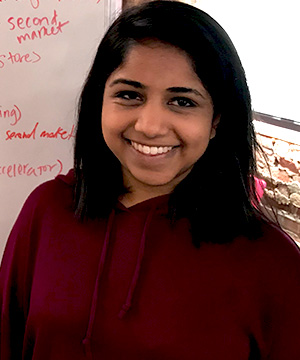
Freshspire, an online platform that provides local food growers a way to communicate quickly with customers, creating a network and community of zero food waste. Shraddha Rathod, who received her bachelor’s in electrical and computer engineering at NC State College of Engineering, started working on Freshspire while in high school, at the North Carolina School of Science and Mathematics. Her concept has evolved, and her team now includes Matt Simpson, chief technology officer who attended the Accelerator’s opening day with her; Ziwa Mukungu, lead technology developer; and Mona Amin, business development.
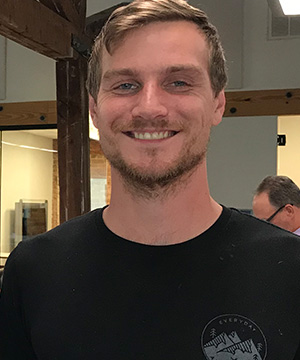
Tennisbloc is a company that employs technologies to empower organizers and communities to create accessible, meaningful and engaging tennis communities. Lee Kinchloe, founder and CEO, has been working on his startup since graduating from NC State Poole College in 2016, with a bachelor’s in business administration, concentrating in entrepreneurship and marketing. His goal is to make tennis more inclusive and affordable. Kincheloe said he “grew up in a working class family, and loved tennis, but it was costly.” His positive experience with tennis led him to create a way for others to also experience tennis, which has been less accessible to youth than team sports. Working with him at Tennisbloc are Jackson Bowen, chief human resources officer and operations supervisor, and Grant Yentzer, lead web developer.
The Accelerator Process
While each of the 2019 teams has been developing their startups for several years, the Accelerator program will help them advance toward their goals through applied learning with key milestones and mentorship by entreprenuers in residence.
“Each week, you will go through very important components of the startup journey, introducing you to concepts you haven’t heard of before,” said Gabe Gonzalez, program manager at the NC State Entrepreneurship Clinic, speaking at the first session.
The entrepreneurs got a hint of what is to come through conversations with Andrews and Winstead, who spoke briefly about their individual entrepreneurial journeys.
The team members’ first assignment was to consider “where do you see yourself going, and where are you today.” They wrote their goals on white boards – looking three and six months ahead as well as one, three and five years out, then took photos of their goals to serve as references for their Accelerator assignments.
The teams will meet each Tuesday. In May, they will learn from guest speakers discussing team dynamics, startup etiquette and how to talk with a customer. In June, they will begin meeting with their mentors and focus on product management, sales and finance. In July, they’ll focus on technology, storytelling and communications. The Accelerator concludes with team presentations at a demo day scheduled for August 20, when the winning team will be announced.
Previous Accelerator Teams
- Categories:
